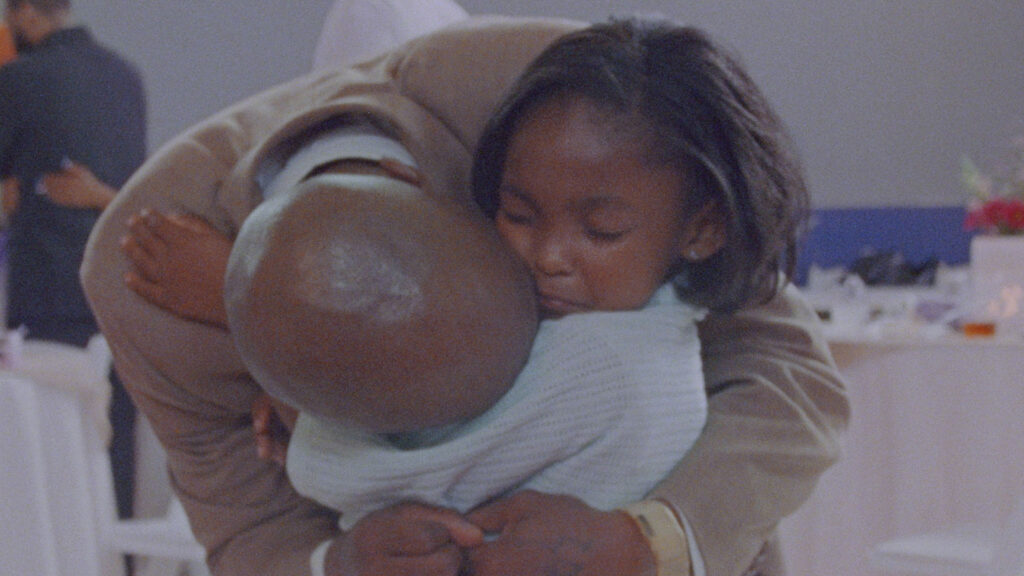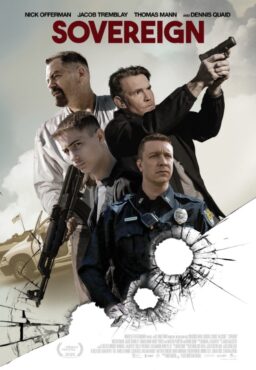The festival is wrapping up, the final screenings are about to play this weekend, favorites are being shared, and the award winners were just crowned on Friday. They represent just a few of the many deserving films Sundancers will have a few more days to catch before the party winds down in Park City and online until next year. In the U.S. Documentary category, the winners ranged from the Audience Award pick “Daughters,” which followed a father-daughter dance behind prison walls that ever-so-briefly reunited families, Best Directing winner “Sugercane,” which explored the devastating legacy of a residential school in a Canadian Indigenous community, and the Grand Jury Prize, which went to “Porcelain War,” an intricate story of the war on Ukraine told from the perspective of artists who stayed behind to fight alongside other civilians.
Angela Patton and Natalie Rae’s “Daughters” won not only the Audience Award for its category, it was named the Festival Favorite by voters, topping steep competition from throughout the fest. It’s a well-deserved distinction as Patton and Rae’s film tackles an uncomfortable subject with such compassion and care. The documentary follows a small cohort of young Black girls, including a 5-year-old named Aubrey, 10-year-old Santana, 11-year-old Ja’Ana, and 15-year-old Raziah. Each of them long for their fathers to return home, but in the meantime, a program called Girls for a Change orchestrates a one-day “Date with Dad,” where the girls and their fathers get the chance to hug, share a meal, and dress up for a dance within the prison gym. It’s a tearful reunion for both parties, but for some, it may be the only chance they get to connect with their loved ones for years.
Despite the bleak predicament these families find themselves in, the filmmakers find ways to balance the heartbreak with heartwarming moments. For every scene we listen to a tough confessional, we see jokes made in the father’s mandatory counseling sessions. For every tearful or solemn-faced interview a young girl gives to the camera, Patton and Rae make sure to show them and other Black girls like them playing with others, doing cartwheels, splashing in water, and riding a scooter. It’s a display of innocence opposite the serious issues facing their parents; the carefree girlhood that’s under threat from the criminal justice system.
Instead of focusing on what the fathers have done to land in prison, the film is zeroes on the girls, the innocent children who become the law’s collateral damage as they suffer through reduced visitations, long trips to see their dads, expensive phone minutes to stay in touch, resentful mothers who perhaps don’t want their daughters to continue to have a connection with their incarcerated fathers, and long sentences that prohibit them from any kind of reunion during those crucial childhood years. It speaks to the directors’ abilities to gain trust to have the children and parents talk so openly about these sensitive experiences while beautifully capturing such a tender experience. “Daughters” is a heartbreaking study in family separation and its effects on the next generation, but the film also gives a heartwarming sense of hope for the day that families can reunite.

“Sugarcane” also addresses the pain of family separation and the generations of harm it can cause. Emily Kassie and Julian Brave NoiseCat’s searing documentary explores the intergenerational trauma carried by survivors of residential schools, especially the St. Joseph Mission near the Williams Lake First Nation, where conditions were so deplorable, former students still struggle to find the words to describe it. In 2021, unmarked graves were discovered near the now-closed mission, uncovering buried truths about what went on at residential schools where Indigenous children were punished for speaking their language or practicing their culture, forced to take up Christianity, and shamed for not being white. The film is so unflinching in its efforts to document the horrors that occurred, Sundance included a content warning for the descriptions of sexual and physical violence in the film.
Decades after the abuses took place, healing takes on different forms, and the film follows the experiences of NoiseCat and his father, Ed Archie NoiseCat, who survived the mission’s infanticide, and other survivors like Rick Gilbert, who was born at the mission as the result of priests sexually assaulting his mother. Charlene Belleau, one of the Williams Lake elders spearheading the investigation, continues to exhume forgotten secrets and tales of abuse that others ignored for generations. The cameras kept rolling in “Sugarcane” as people grew quiet, their eyes well up with tears, or their fists shook in anger. It follows NoiseCat and his father as they grow closer and hit the road to visit family and search for answers. It watches Gilbert and his wife research his ancestry only to find that he’s related to one of the former priests who led the Catholic school. It follows Belleau as she reads aloud each painful testimony, bringing their words back to life from beyond the grave.
Kassie and NoiseCat’s documentary leaves behind a haunting question: how many more millions of Indigenous people were abused at residential schools? How many have similarly horrific stories to unearth after decades of suppression? It’s a window into unspeakable pain and a step towards acknowledging and mourning the souls lost in such a humanitarian catastrophe, all while paying tribute to the community today as it continues to rebuild after this atrocity.

“Porcelain War,” explores a topic straight from yesterday’s front page—the ongoing war between Russia and Ukraine—from the workbench of a pair for artists who make porcelain figures and their family friend and painter-turned-cameraman. Before the war, husband and wife team Slava Leontyev and Anya Stasenko worked together to make small-but-impressive figurines, like small owls painted delicately with gold and figures within the figure, a snail whose shell tells a story, a small dragon that looks like he would accept some pets.
Slava carefully carves the pieces and shapes his work before handing them off to Anya to ink and paint each miniscule detail. Like their friend and cinematographer, Andrey Stefanov, they all had to flee Crimea when the Russians took the area for Putin. Now, Slava, as a member of the Ukrainian Special Forces and a weapons instructor, prepares fellow civilians for the fight of their lives as Andrey worries about the family he sent away for safety and Anya continues to create in defiance of Russia’s efforts to erase Ukraine. In some moments, the movie animates the miniature scenes Anya painted to illustrate the couple’s story against their enemy.
Brendan Bellomo and Leontyev’s unconventional documentary “Porcelain War” takes viewers to the tense frontlines yet shares the couple’s domestic joy, including walks in the forest with Anya and Slava’s dog, Frodo, upbeat otherworldly music from Dakhabrakha that mix folk music and woodland creature sounds, detailing how the porcelain creatures are made and painted. These charming scenes in Kharkiv are at odds with the threats of bombs, destruction, and death just 25 miles away from the Russian border. Yet, among the ruins, art persists. “When they erase these people, they erase Ukraine,” a voice over says. The fight to survive is all around them, from the city and forest paths to the art studio. “Ukraine is like porcelain, easy to break but impossible to destroy,” says Slava, and through each loss and setback, the troops continue on, ready to create their new future now forged in fire like artists with their latest work of art.












